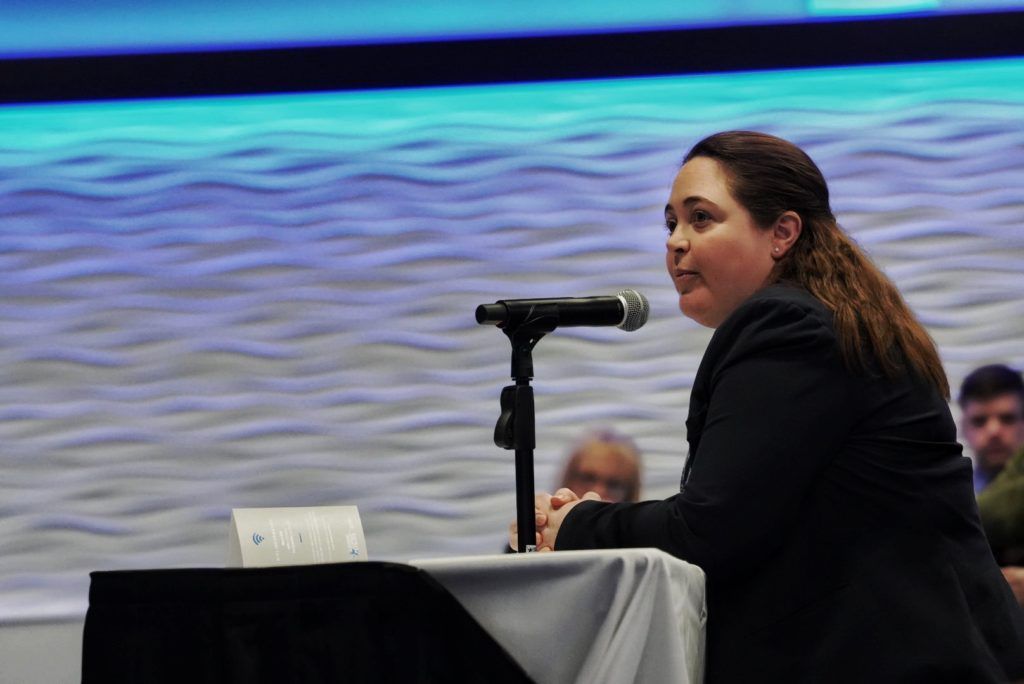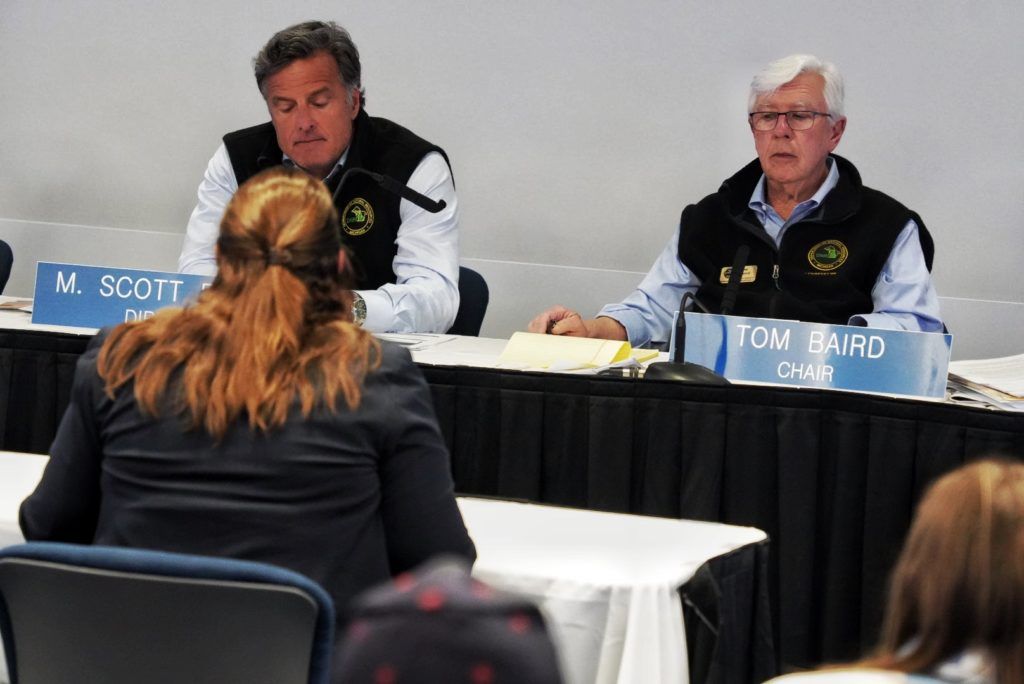March NRC: Commission Votes to End Year-round Coyote Hunting
Commissioners voted to close Michigan’s coyote season from April 15 to July 15 at March’s Natural Resources Commission (NRC) meeting.
Commissioners voted on Wildlife Conservation Order #1 of 2024 , and based their decision on perceived social pressures, shirking their responsibility and legal charge to follow sound scientific management.
MUCC Chief Executive Officer Amy Trotter said that this sets future managers at a disadvantage, making it harder to use lethal control.
“No scientific evidence has been presented to justify the closure of the coyote hunting season, and the NRC had an obligation to oppose this part of the order per Proposal G and the authority it provides to them,” Trotter said. “Now enacted, it will make the fight to defend lethal wildlife management that much harder.”

MUCC Policy and Government Affairs Manager Justin Tomei said the science on coyote management is clear.
“Today, we laid out a clear scientific argument for the use of lethal coyote management, via hunters, during the spring and summer months,” said Tomei. “Coyote management is most effective in the spring when you can actively control local predator populations, limit depredation and increase deer densities.”
MUCC also made the case that the commission should at least wait until the conclusion of the Deer Management Initiative (DMI) to see what recommendations the workgroup comes up with regarding predator management.
“The first question during the first DMI meeting was about predator management,” Trotter said. “The DMI will inevitably make some recommendation regarding predator management, and the commission should wait to ensure all stakeholder opinions are considered.”
The vote came after commissioners rejected attempts from commissioners Nyberg and Walters to remove the closure from the wildlife conservation order and table the vote. Ultimately the closure was adopted on a 4-2 vote, closing coyote season beginning April 15.

MUCC opposed the closure based on a 2005 and 2024 policy supporting year-round coyote hunting. For many years, MUCC has advocated on behalf of its grassroots members to expand opportunities to harvest coyotes.
At MUCC’s Annual Convention this past weekend, its membership unanimously adopted another resolution reinforcing our unwavering commitment to sound scientific management and year-round coyote hunting.
Before the committee of the whole, the wildlife committee saw a presentation on deer predation in the UP, and the fisheries committee saw a presentation on invasive carp.
The director’s report featured a 40 years of service award, the wildlife division annual report, migratory game bird hunting seasons overview, elk regulations, and a Deer Management Initiative update.
The commission had two orders up for information at the meeting.
Wildlife Conservation Order #2 of 2024 sets season dates, within federal guidelines, for migratory waterfowl species. The season dates and bag limits fall in line with the 2023 season structure.
Wildlife Conservation Order #3 of 2024 sets elk regulations, to which there are no substantive changes to dates, regulations, or quotas. The order includes a return of in-person check stations, something constituents have asked for as a community event.
Both of these orders are eligible for action at the April 11 meeting.
MUCC reviews all land transactions exceeding 80 acres, of which there was one. Land Transaction Case #20240002 is a gift of 200 acres, which will be dedicated as part of the Barry State Game Area.
To ensure our natural resources remain protected and managed thoughtfully and our outdoor heritage defended, join Michigan United Conservation Clubs today!
The post March NRC: Commission Votes to End Year-round Coyote Hunting appeared first on Michigan United Conservation Clubs.
Recent Posts



